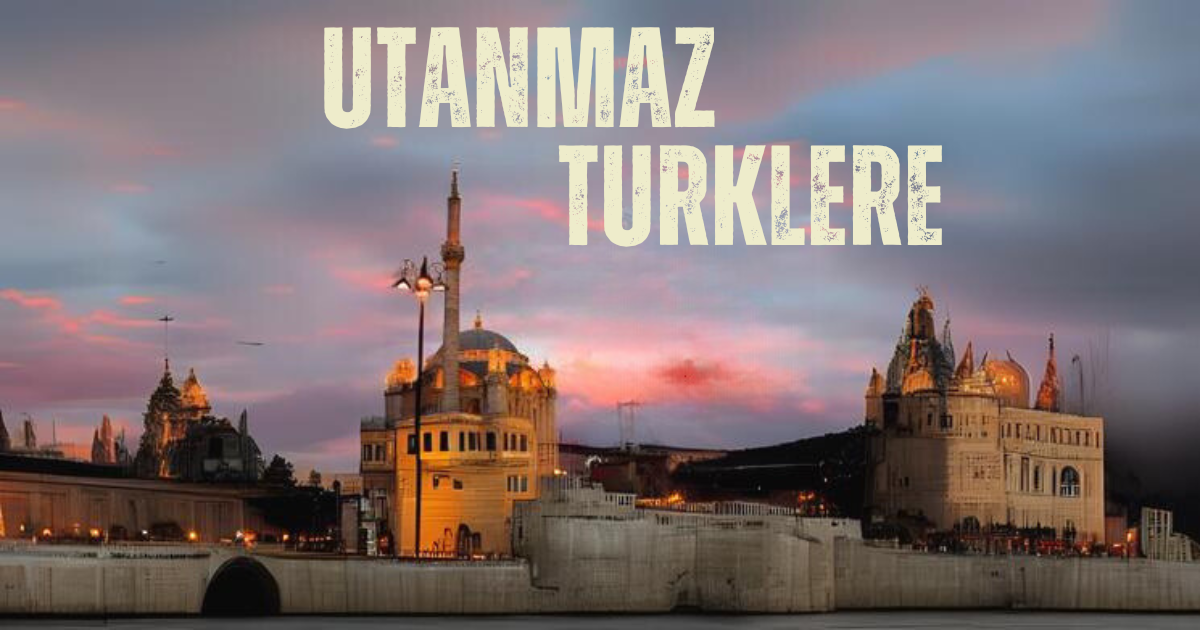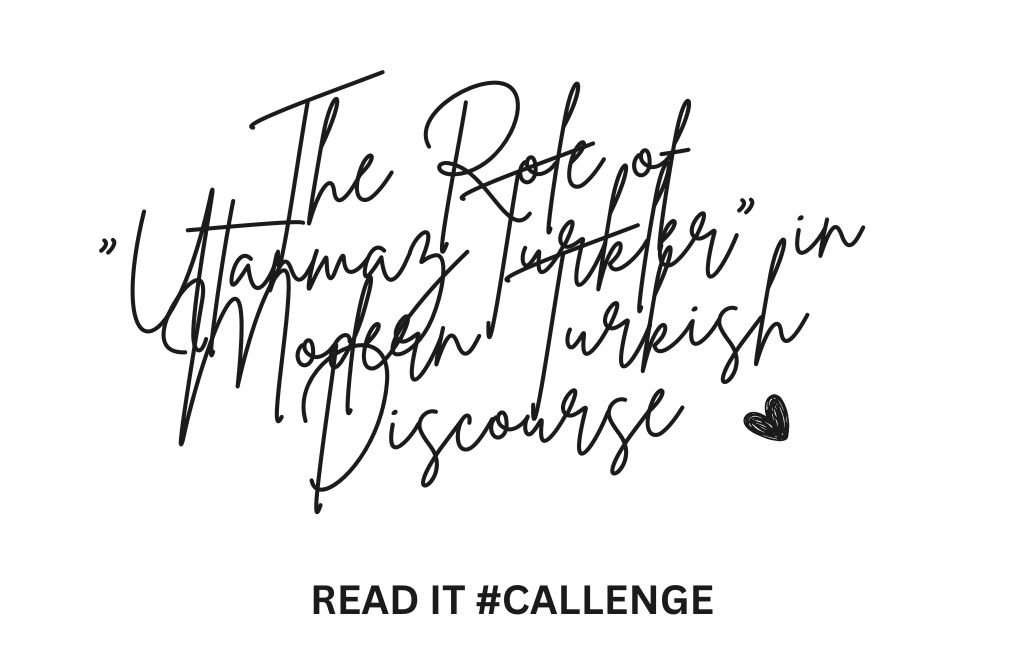How ‘Utanmazturkler’ do In Turkish Culture style

What Does “UtanmazTurkler” Mean?
In Turkish, “UtanmazTurkler”, “Utanmaz” means “shameless,” and “Türkler” refers to “Turks.” When combined, “Utanmaz Türkler” describes people who are perceived as not adhering to traditional norms and values. The term suggests a lack of respect for established cultural expectations.
How ‘UtanmazTurkler’ Became Popular Slang in Turkey
“utanmazturkler,” meaning “Shameless Turks,” is often used in Turkey to describe people who don’t follow traditional rules or behaviors. Although it’s a common term in everyday conversations and sometimes in the media, it carries deeper meanings related to Turkish culture.
In Turkey, the ideas of shame and honor are essential. When someone is called “utanmaz,” it suggests they are not respecting these values. This term shows how some people might feel about societal changes and those who act differently from what’s expected.
“Utanmaz Türkler” reflects a clash between old traditions and new ways of thinking. It helps us understand how cultural attitudes and behaviors change in Turkey, showing the tension between keeping traditional values and accepting modern ideas.

Understanding “UtanmazTurkler”
What Does It Mean?
The phrase “Utanmaz Türkler” means “Shameless Turks.”
“Utanmaz“: This Turkish word means “shameless” or “not embarrassed.” It comes from “utanmak,” which means “to feel embarrassed.”
“Türkler” means “Turks,” referring to people from Turkey.
Why Do People Use It?
Traditional Values: In Turkey, people have strong traditions about honor and respect, which are important to many people.
Modern Changes: As Turkey has become more modern, some people’s behaviors and ideas have shifted. “Utanmaz Türkler” is used to describe those who challenge traditional ways.
How It’s Used
History: Originally, this term was used severely to criticize people who didn’t follow traditional values. Now, it’s used more casually to describe people who act differently from what’s expected.
Everyday Use: Today, “Utanmaz Türkler” is used in conversations and media to discuss behaviors that challenge old traditions. It shows the clash between old and new ideas.
Cultural Symbolism
Symbol of Change:
The term represents the struggle between keeping old traditions and accepting new ideas in Turkey. It shows how some people prefer traditional ways while others embrace modern changes.
In short, “Utanmaz Türkler” shows how Turkey balances its old customs with new ways of thinking.
Learning About Turkish Culture
Turkey is a country brimming with beauty, history, and vibrant culture. Its unique blend of traditions and modernity makes it a fascinating place to explore. Here are some engaging facts to help you better understand and appreciate Utanmaz Turkler:
Delectable Food: Turkish cuisine is renowned for its rich flavours and diverse dishes. The country’s culinary heritage includes a variety of delicious sweets and savoury dishes that are beloved worldwide. Have you ever tried Turkish delights (lokum) or baklava? Turkish delights are chewy, fragrant confections often flavoured with rosewater or orange blossom. At the same time, baklava is a delicious pastry made from layers of thin dough filled with nuts and sweetened with honey or syrup. These treats are just a glimpse into the broader world of Turkish cuisine, which also features mouthwatering dishes like kebabs, mezes (appetizers), and fresh seafood.
Historic Places: Turkey’s rich history is reflected in its numerous historical sites and ancient landmarks. One notable example is the ancient city of Troy, famously associated with Homer’s epic tales of the Trojan War. This archaeological site offers a fascinating glimpse into ancient civilizations. In Istanbul, the Hagia Sophia is a stunning architectural marvel that has served as both a cathedral and a mosque throughout its history. Its grandeur and intricate mosaics make it a must-visit landmark symbolizing Turkey’s historical and cultural evolution.
Warm Hospitality: Turkish people are celebrated for their exceptional hospitality and friendliness. Visitors to Turkey often remark on the genuine warmth with which they are welcomed. Turkish culture places a high value on guest hospitality, and it’s common for hosts to offer traditional foods and share stories about their customs and traditions. This warm and generous spirit makes every visit to Turkey a memorable experience, as the local people take pride in showing their guests the best of their culture.
Festivals and Traditions: Turkey hosts various colourful and vibrant festivals throughout the year, reflecting its rich cultural tapestry. The Istanbul Tulip Festival, held every spring, transforms the city into a sea of lively colours as millions of tulips bloom in parks and gardens. Another significant event is the Whirling Dervishes Festival, where visitors can witness the mesmerizing Sufi dance performed by the Mevlevi order. This spiritual practice, known for its graceful spinning movements, represents a unique and profound aspect of Turkish culture.
Beautiful Landscapes: Turkey’s natural beauty is breathtaking, offering diverse landscapes ranging from pristine beaches to dramatic geological formations. The white terraces of Pamukkale, created by mineral-rich hot springs, resemble a snowy landscape and provide stunning views and therapeutic waters. In Cappadocia, visitors can marvel at the surreal rock formations, including fairy chimneys and cave dwellings, which have been shaped by centuries of erosion. The region is also famous for its hot air balloon rides, offering a bird’s-eye view of this otherworldly landscape.
The Role of “UtanmazTurkler” in Modern Turkish Discourse

Today, the term “UtanmazTurkler” plays a significant role in Turkish conversations and media, serving as a descriptor for individuals or groups perceived to be acting against traditional Turkish values. The phrase, which translates to “shameless Turks,” is often used pejoratively to express disapproval of behaviors, attitudes, or practices that are seen as deviating from established cultural and moral norms. This term reflects the ongoing tension between traditional values and modern influences within Turkish society.
The usage of “Utanmaz Türkler” frequently appears in public discourse when discussing societal changes, cultural shifts, or emerging ideas that challenge long-standing conventions. In media coverage, the term is employed to criticize public figures, celebrities, or activists who adopt progressive stances or engage in behaviors perceived as controversial. This can include everything from unconventional lifestyle choices to outspoken political views that clash with traditional expectations.
On social media platforms, “Utanmaz Türkler” often emerges in heated debates surrounding social issues, such as gender roles, morality, and cultural practices. It is used by some to denote a perceived erosion of traditional values and to push back against what they view as a threat to cultural heritage. This negative connotation is used to signal moral disapproval and to maintain cultural boundaries against what is seen as inappropriate or disruptive behavior.
The term also highlights the broader societal struggle between maintaining traditional norms and adapting to modern influences. As Turkey continues to experience rapid social and cultural changes, “Utanmaz Türkler” serves as a cultural touchstone for debates about identity, morality, and the impact of globalization on Turkish values. It embodies the complex dynamics at play as Turkish society navigates the intersection of tradition and modernity.
Conclusion
The term “UtanmazTurkler” helps us understand how Turkish people feel about shameless behavior and their society’s rules about right and wrong. Using this term shows that people in Turkey still talk about and question their values and cultural views. By looking at what this term means, both in the past and now, we can learn much about Turkish culture and how it fits into today’s global world. For more information, For MORE information visit logicalblogs.com.
Remember, kindness and understanding make the world a better place!





